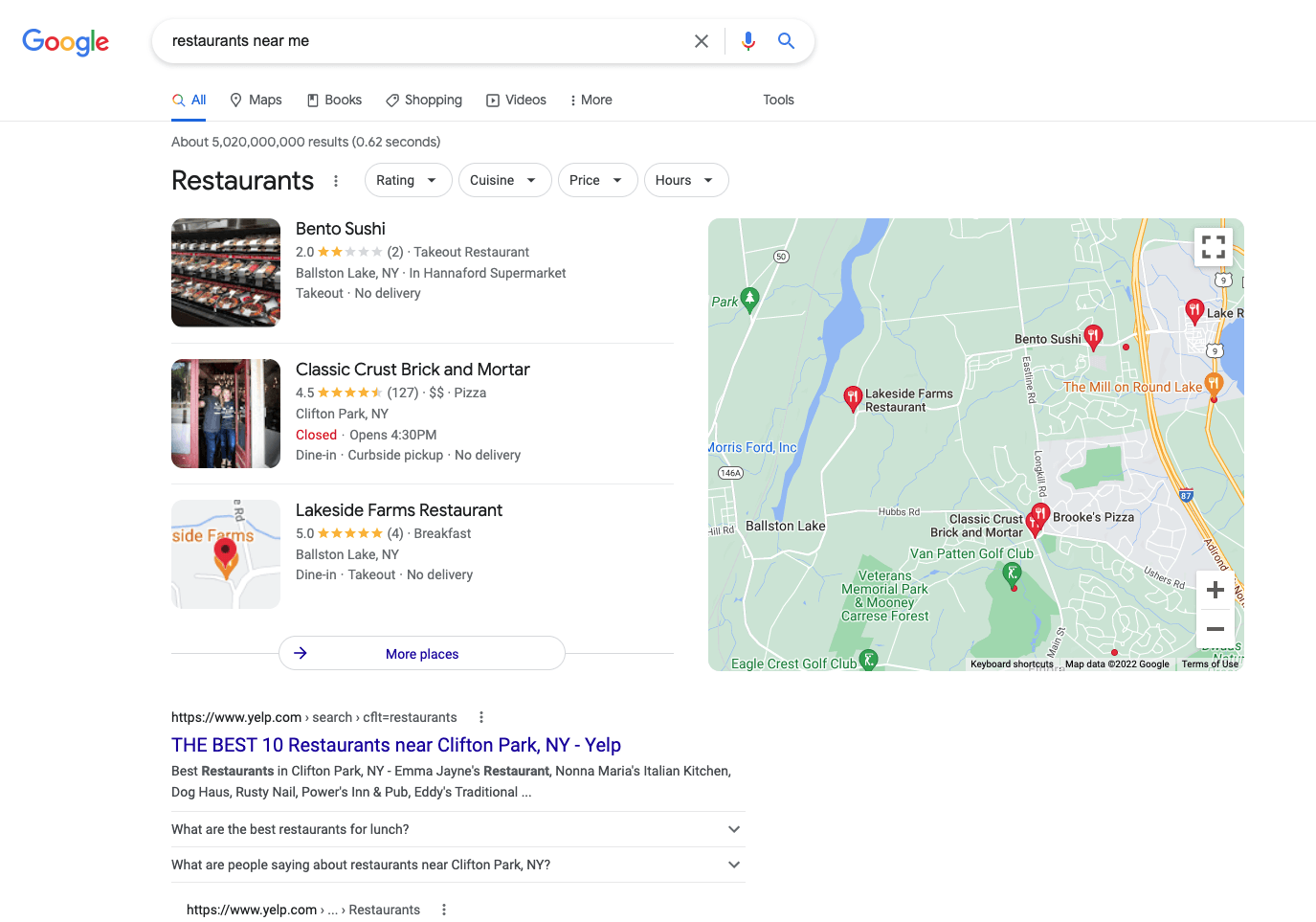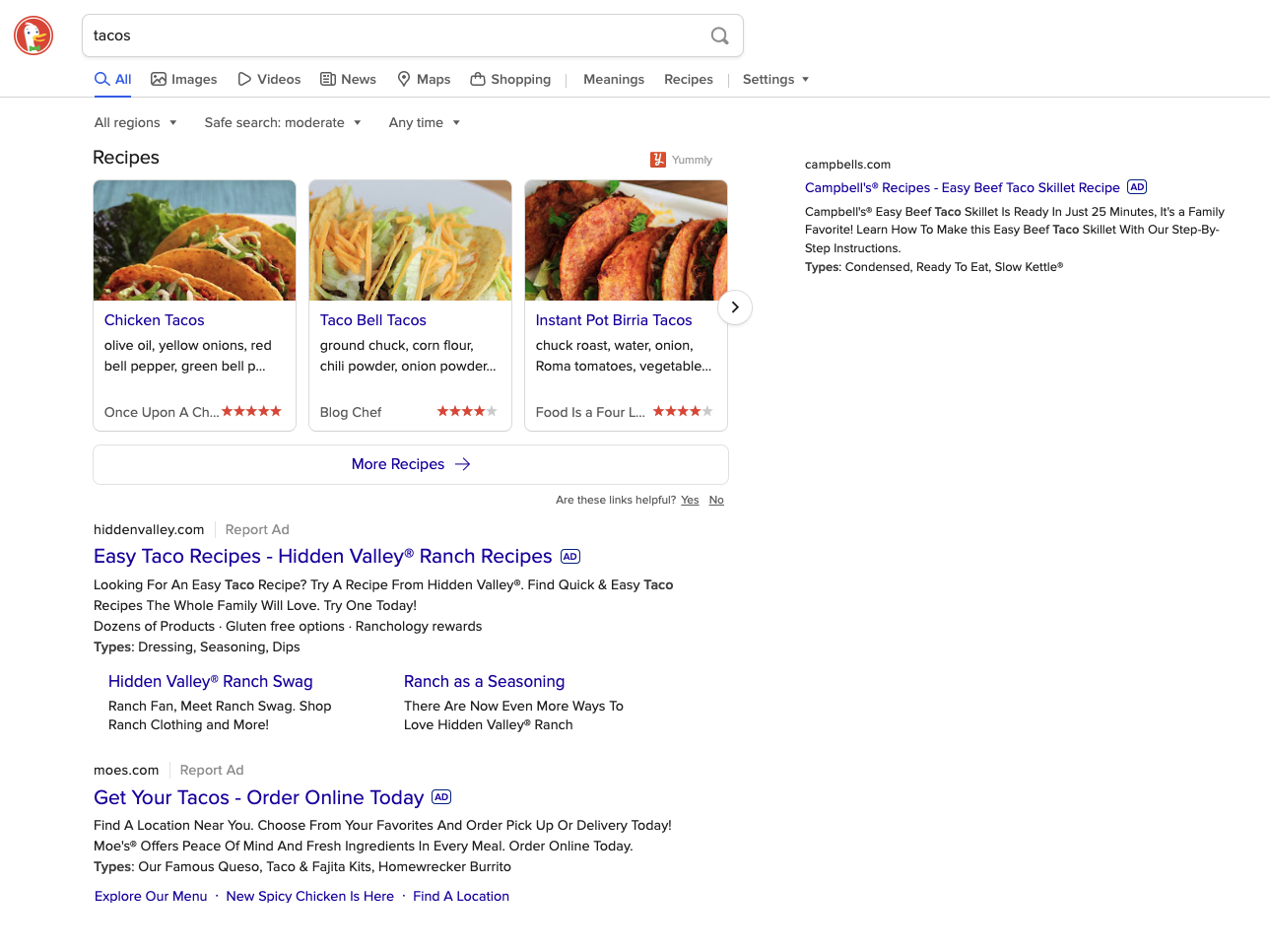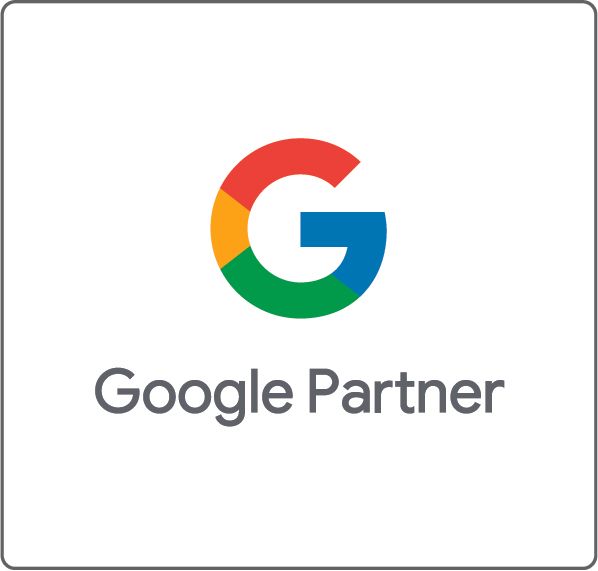Why Are Users Choosing DuckDuckGo?
DuckDuckGo is an unbiased, unfiltered, alternative search engine. DuckDuckGo’s new way to search keeps all user information private while still providing accurate and relevant search results. Other search engines such as Google, Yahoo, or Bing keep all user information to target for advertising. As users are becoming more aware of how their personal data is being used or in some cases leaked they are more conscious of where they are sharing and where they are searching
What Does DuckDuckGo do?
DuckDuckGo does almost everything current popular search engines do. With the knowledge that their information is private, users can freely search for maps, weather, local business answers, definitions, flight information, products, sports scores, questions and answers, and so much more. What more does DuckDuckGo have to offer? It has language and region localization, customizable themes, and shortcut commands that take you to other websites directly. DuckDuckGo is safe to use on your favorite browsers and operating systems.
How is DuckDuckGo Different from the Rest?
Typically, websites will store the user’s IP address so they know where to send information. Search engines will also keep track of search history and personal data. DuckDuckGo hides IP address’ and redirects the information request to prevent it from sending the user’s search terms to the site. DuckDuckGo provides organic search results while actively blocking other search engines from collecting user data. DuckDuckGo uses web crawlers and hundreds of other sources to compile results. Other search engines like Google use crowdsourcing sites like Wikipedia. DuckDuckGo uses information from user-review sites like Yelp to provide reviews, addresses, phone numbers, business hours, etc. Locations are provided exclusively from Apple Maps.



No Search History, No Problem!
A lot of people want their privacy, but when using Google, Yahoo, or Bing, users are targeted with ads based on their search history. Since DuckDuckGo does not store any information, everytime one goes to use DuckDuckGo’s browser they will get new, fresh results. Every search is independent and never has anything to do with previous searches. DuckDuckGo still makes money by providing the user with ads, however, they target keywords that are searched instead of using previous information. DuckDuckGo uses “search-vertical options” in every search to show the user results for only what they are looking for. If a user searches for their favorite food, DuckDuckGo will trigger the “recipe” vertical and show only recipes for their favorite food. Since DuckDuckGo does not track your location, instead of searching “restaurants near me,” you would have to input your location into the search.
Third-Party Trackers Who?
Traditional search engines use trackers to serve relevant ads after your initial search and to track the consumer sales journey. However, DuckDuckGo blocks this tracking. Every time a search is conducted on DuckDuckGo, the search query is performed without any context from previous searches. A fun feature of DuckDuckGo’s mobile app is that it will block all trackers from other search engines. They also offer a browser extension which will actively block tracking pixels for you. Since there is no information to base the ads off, the user will receive less personalized digital ads.
Pros and Cons of DuckDuckGo
DuckDuckGo is making its way up there in popularity. 80 million people have been using DuckDuckGo as their preferred search engine as of November 2020. Some pros of using DuckDuckGo include privacy when searching, a clean interface, only contextual ads, unbiased search results, shortcuts to websites and no social engineering based on user searches. Of course pros come with cons and since DuckDuckGo is not as big of a name as Google, there are a few bugs that need to be fixed. Additionally since they are so new, DuckDuckGo’s search algorithm is not nearly as sophisticated as Google. There are limited results, poor mapping and image results, no protections from viruses, and overall low ranking factors.
As marketers, we need to be aware of the ongoing conversations about consumer privacy. We need to be mindful of protecting our customers' personal data while also creating relevant and meaningful campaigns. Since users may steer more towards the privacy of DuckDuckGo, that means less data to work with and a reimagining of personalized campaigns. However, DuckDuckGo is a partner of Microsoft and uses their ad platform to deliver their contextual ads based on keyword searches.
















